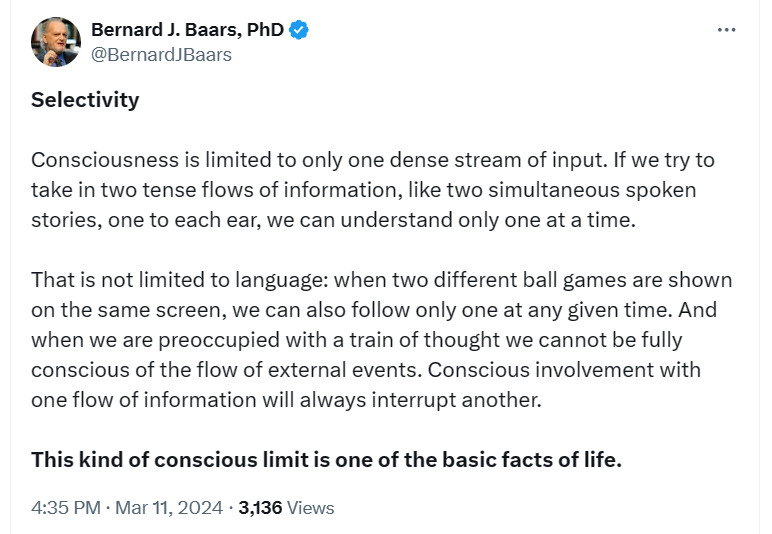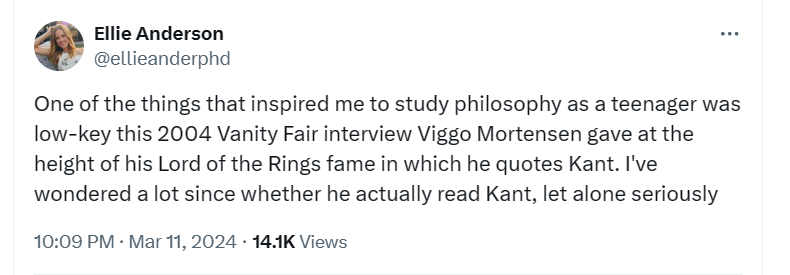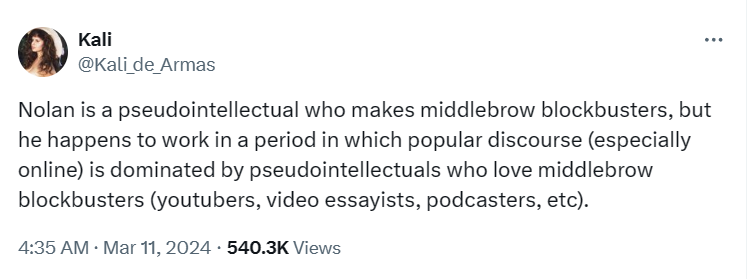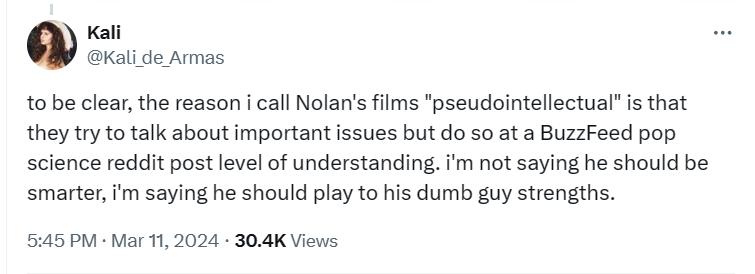Judith Butler’s Peculiar Prose Style

This is a serious question: Why does Judith Butler write in a very peculiar way?
The English philosopher Julian Baggini once argued that Jacques Derrida’s philosophy was somehow embedded in his “complex and difficult” prose style. This doesn’t mean that Derrida’s philosophy couldn’t help but be written in complex and difficult prose simply because the philosophy itself is difficult and complex. It means that the (supposedly) complex and difficult prose is actually part of the philosophy.
So is the prose style somehow part of the philosophy in Judith Butler’s case too?
An alternative way of looking at this is to say that Butler’s prose style is pretentious.
Butler has been accused of “bad writing” so many times that she’s had a couple of decades (or more) to come up with… pretentious rationalisations for her pretentious prose. She’s a skilled academic. So she can verbally worm her way out of a hermetically-sealed coffin. [See ‘We Got the Wrong Gal: Rethinking the “Bad” Academic Writing of Judith Butler’, which is a defence of Butler’s bad writing.]
So why is Butler’s prose style pretentious?
It’s mainly because it’s a prose style which was adopted by certain (largely American) academics, in certain (largely American) university departments, at a certain point in history. And they’ve adopted this prose style primarily to hide and obscure their bad arguments (or total lack of arguments), banal ideas, and their truisms.
Reading and Listening to Music at the Same Time

I wonder how reading and simultaneously listening to music fits into Bernard J Baars’ post above. Sure, you can’t concentrate as much on the music as you could do if you solely listened to the music. However, surely these two things do occur together. In fact, listening to music and reading is a common phenomenon. (Personally, I don’t do this anymore. However, I once did.)
One wonders — as a non-specialist — what’s going on in both the brain and mind to make this possible.
I don’t believe it’s a case of “switching” either.
That is, it’s not a case of switching between the reading and the music. (Bernard J. Baars writes: “Conscious involvement with one flow of information will always interrupt another.”)
All this reminds me of an example from the philosopher Ned Block of someone reading and all along there’s the noise of heavy wind outside. The reader hears the wind at all times. However, only at a certain time does he actually note (a loose word, admittedly) that it’s the wind he can hear. And he also notes that it’s a heavy wind.
As Block puts it: this person is phenomenally conscious of the wind, and then he becomes access conscious of the wind only at a certain point.
Reading Kant Seriously

What is it to have read Kant “seriously”?
And how seriously must someone have read a philosopher before he or she can quote — or even mention — that philosopher?
Take Wittgenstein and the Wittgenstein Interpretation Industry, which publishes around 1000 articles, books, papers, etc. on the Austrian philosopher every year. (This is a figure I once read for a single year at least. Although it can’t be correct… Surely?!)
Do I need to heavily invest in this industry before I can quote — or even mention — Wittgenstein?
What Is a “Pseudo-Intellectual”?

Most of the time I come across the sneering term “pseudo-intellectual” all it means is that the person who uses it doesn’t like (or agree with) the person he’s criticising.
It also often means “non-academic” or “non-expert”.
Yet that too ties in with the first point.
Another related way the term “pseudo-intellectual” is used is to refer to those intellectuals who express political views that the critic doesn’t like or agree with. Thus, the very fact that the intellectual holds and expresses political views the critic doesn’t like (or agree with) renders him pseudo…
Intellectuals with the correct political views, on the other hand, are Real Intellectuals.
That said, there is so much sneering jargon in the following passage that I don’t really know what to make of it. Here goes:
“Nolan is a pseudointellectual who makes middlebrow blockbusters, but he happens to work in a period in which popular discourse (especially online) is dominated by pseudointellectuals who love middlebrow blockbusters (youtubers, video essayists, podcasters, etc).”

[The following was an additional post on X.]
Sure. Many of Nolan’s films include scientific issues and references. So are you simply accusing Nolan of not being a… scientist? I think he’d hold up his hands to that charge. However, Nolan does have scientists helping him on the screenplays he writes, including Kip Thorne.
Instead of relying so heavily on words like “pseudointellectual”, “BuzzFeed pop science, “dumb”, etc., why not provide an argument? It seems that you rely too much on rhetoric.
Apart from posting on X, what are your own credentials? What gives you the right to speak so loudly on this subject?
Shorter

It couldn’t be a “starting point”.
Solipsism is (or was) the end product of a train of philosophical reasonings (epistemological or otherwise). More simply, it’s a philosophical position. So how could solipsism be an “obvious starting point” for epistemology — or for anything else?
Note that this isn’t to say that solipsism is either a valid or an invalid position.
Shorter

I’m not sure how Justin D’Ambrosio could know that these classic philosophical works would be rejected today…
Actually, if someone sent in a work of transcendental idealism, written in the dense style of of a 18th century German academic, then I suppose that it would be rejected. Yes, it would be a very odd submission. However, this may well apply to all works written before, say, the year 2000. Or even before the year 2020!
… But I don’t believe that’s what D’Ambrosio meant.
The Critique of Pure Reason was written in a very academic style. So it would have that going for it. Still, an 18th century academic style won’t be like the academic styles of 2024.










No comments:
Post a Comment